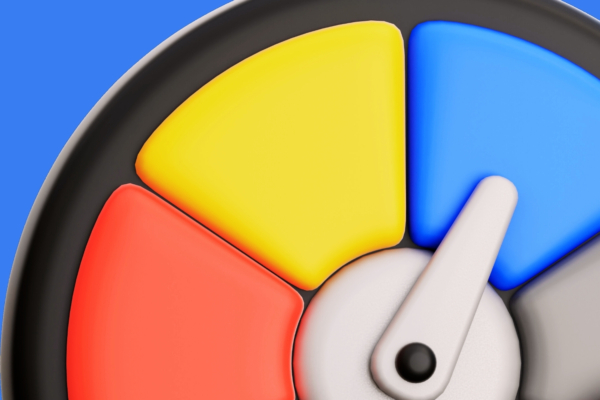
Save on Utilities This Summer

Just as extreme cold can stress houses in colder climes, extreme heat can cause wear and tear to your Lone Star State home while also hiking your energy usage. As we approach Texas’ hottest time of the year when the highs peak above 100 °F, you may be thinking about how you can minimize the impact of heat on your home and how you can save on utilities this summer.
13 Ways to Save on Electricity This Summer
It’s not uncommon for electric bills to skyrocket in the summer months.
The main culprit? Cooling down your home. The following tips can help your home cool more efficiently, keep heat from getting in your home in the first place, and reduce your energy consumption overall.
1. Invest in weatherstripping.
Leaking air along doorways, windows, foundations, and other seams could be putting your AC into overdrive. A common fix for this is weatherstripping, which seals gaps in these areas. Weatherstripping can be an easy DIY job with materials found at local hardware stores.
If you prefer to hire a professional, certified technicians can conduct an energy audit, including a blower door test, to identify such leaks and weatherstrip accordingly.
2. Insulate your house.
Most modern houses are built with insulation in walls and attics. However, many older homes were built without. Insulating your attic is an affordable way to keep the cold air in during summer months and the hot air in during winter months, saving you year-round.
Like weatherstripping, installing attic insulation can be a DIY job if you’re familiar with the work. If you’re not comfortable working with fiberglass or insulation, hiring a professional is a great way to make sure your home is insulated correctly.
Fee-Free Banking is Here
Looking for a financial institution that doesn’t nickel and dime you? If you live or work in Texas, join Amplify!
3. Optimize your air conditioning system.
Your A/C works overtime during the summer, so making sure that it’s running effectively and efficiently is key.
Change your filters regularly, and if you’re due for your annual A/C tune-up, schedule it before the busy season kicks in. Note that small problems can become big issues if not addressed right away. For example, repairing a minor leak could be cheap—but replacing a burnt-out compressor caused by the leak (a lack of refrigerant) will likely be costly.
Efficiency isn’t just about the unit itself—check your air ducts as well. Holes and clogs can cause your system to run inefficiently. Experts recommend having your vents and ducts cleaned out every seven to ten years.
4. Think thermostat.
Your thermostat can be a huge asset when it comes to efficiency. A smart thermostat (like a Nest) is more than convenient—it can help you cut down on energy use.
There are a few capabilities that can be leveraged for efficiency:
- Scheduling: By setting a schedule, you can make sure your home is being cooled at the appropriate times—and not wasting energy. For instance, if you’re out of the home from 9-5, you can keep your home a little warmer.
- Learning: Some smart thermostats can use machine learning to set a schedule based on your activities and preferences. If you always set the thermostat lower on the weekend, the thermostat will “learn” and preemptively turn down the temperature for you.
- Remote Wi-Fi Access: Forget to set the temperature higher before leaving the house? With a thermostat that can be remotely controlled, you can change the temperature as needed.
- Energy Reports: Some thermostats will even report on energy usage, so you can see how your small changes really add up.
5. Upgrade your appliances.
Still rocking appliances from the 90s? They may be guzzling energy. Today’s appliances utilize the latest technologies to reduce their energy consumption. If it’s time for an upgrade, shop for appliances that have been Energy-Star certified.
6. Cook with small appliances.
Preparing food via your microwave, toaster oven, or slow cooker is more energy-efficient than cranking up your entire oven or stove in the summer. Not only do smaller appliances use less energy, but they also put off less heat, meaning your A/C won’t have to work harder to compensate.
7. Opt for energy-efficient windows.
According to the U.S. Department of Energy, heat gain and heat loss through windows are responsible for 25%–30% of residential heating and cooling energy use.
But not all windows are created equal.
Many newer window models are designed to insulate and reflect heat. If you have older, single-pane windows in your home, consider replacing them. Purchasing new windows for your home isn’t cheap, but it’s an investment that can pay for itself after a couple of years.
If you already have energy-efficient windows or don’t want to make the switch, there are a few other things you can do to reduce the heat coming in through your windows.
- Buy insulated curtains: Switch to double- or triple-layered heavy curtains backed with insulation to keep the sun from heating your rooms, especially if your windows face west.
- Install an awning outside: Think about adding solar screens or awnings to the outside of windows. Consumer Reports estimates they reduce solar heat gain by up to 65% on south-facing windows and 77% on west-facing windows.
- Apply solar control film to your windows: Window films act much like a tint to your car windows. They don’t block your view out of the window but reflect some of the sun’s hot rays away from your home.
These options are more cost-effective than replacing your windows but can still make a substantial difference.
8. Use fans.
A whirring fan is the sound of summer, and the handy gadgets can be a very cost-effective alternative to air conditioning.
- If it’s cool outside, you can create a cooling effect by placing them in opposing windows, so one pulls in fresh air while the other forces out hot air.
- Set your ceiling fans to “counterclockwise” so warm air is directed up and away.
- Fans may not actually cool the air, but they can make a room feel cooler. As the breeze rolls over your skin, the hot air closest to you is moved away, and any sweat on your skin is evaporated at a faster rate. This is what makes a fan make a room feel cooler.
9. Drop your dryer.
On average, dryers make up 80% of the energy used for home laundry. In hot summer months, opt to air dry (inside or outside) your laundry. If you do use your dryer, make sure to clean the lint trap and vents to ensure optimum operational efficiency.
10. Use cold water to wash your laundry.
A significant amount of energy also goes to heating the water for a load washed in warm water. Switch that setting to cool or tap to save.
11. Air dry your dishes.
Using your dishwasher saves you on water— but heat drying the dishes uses a significant amount of electricity. Air dry your dishes by leaving the dishwasher open or placing them on a drying rack.
12. Opt for energy-efficient lightbulbs.
Still using incandescent or halogen light bulbs? Switch them to energy-efficient LED bulbs. Not only do LEDs use 90% less energy, but they also last 25 times longer than their incandescent counterparts.
13. Unplug what isn’t in use.
Avoid the incremental waste of electricity by unplugging appliances you seldom (if ever) use over the summer.
3 Ways to Save on Water
Whether you’re filling your swimming pool or watering your grass more often, water usage during the summer can skyrocket. In the hot Texas heat, limiting water usage is more than smart—it’s very necessary.
1. Check for water leaks outside.
Malfunctions in your outdoor faucets or sprinkler systems could be wasting precious water and may be dehydrating your landscape. When turning your irrigation system on, especially for the first time after winter, look for obvious signs of leaks such as puddles in the yard or a continuously running meter.
2. Install a low-flow shower head.
Did you know that a low-flow shower head uses 60% less water than a traditional showerhead? It’s a small change that can pay for itself in under a year.
3. Water your lawn at the right times.
Experts recommend watering your lawn before 10 AM. This gives your grass and plants the opportunity to absorb the water without it quickly evaporating in the afternoon heat.
Better yet—consider installing a “grassless” lawn! Many homeowners are rethinking what having a lawn really means, and opting for solutions that are meant for their local climate. This is especially relevant in Texas, where xeriscaping is more popular than ever.
One Step at a Time
Taking time to prepare for the hottest days of a Texas summer can provide peace of mind that you’re doing everything you can to minimize stress on your home and control your energy bills. While doing everything on this list would yield the best results, you’d be surprised how much a few simple changes can save you.
Become an Amplify Member
Every Amplify account holder enjoys fee-free banking. That means no overdraft, maintenance, or other banking fees cutting into your pocket.




